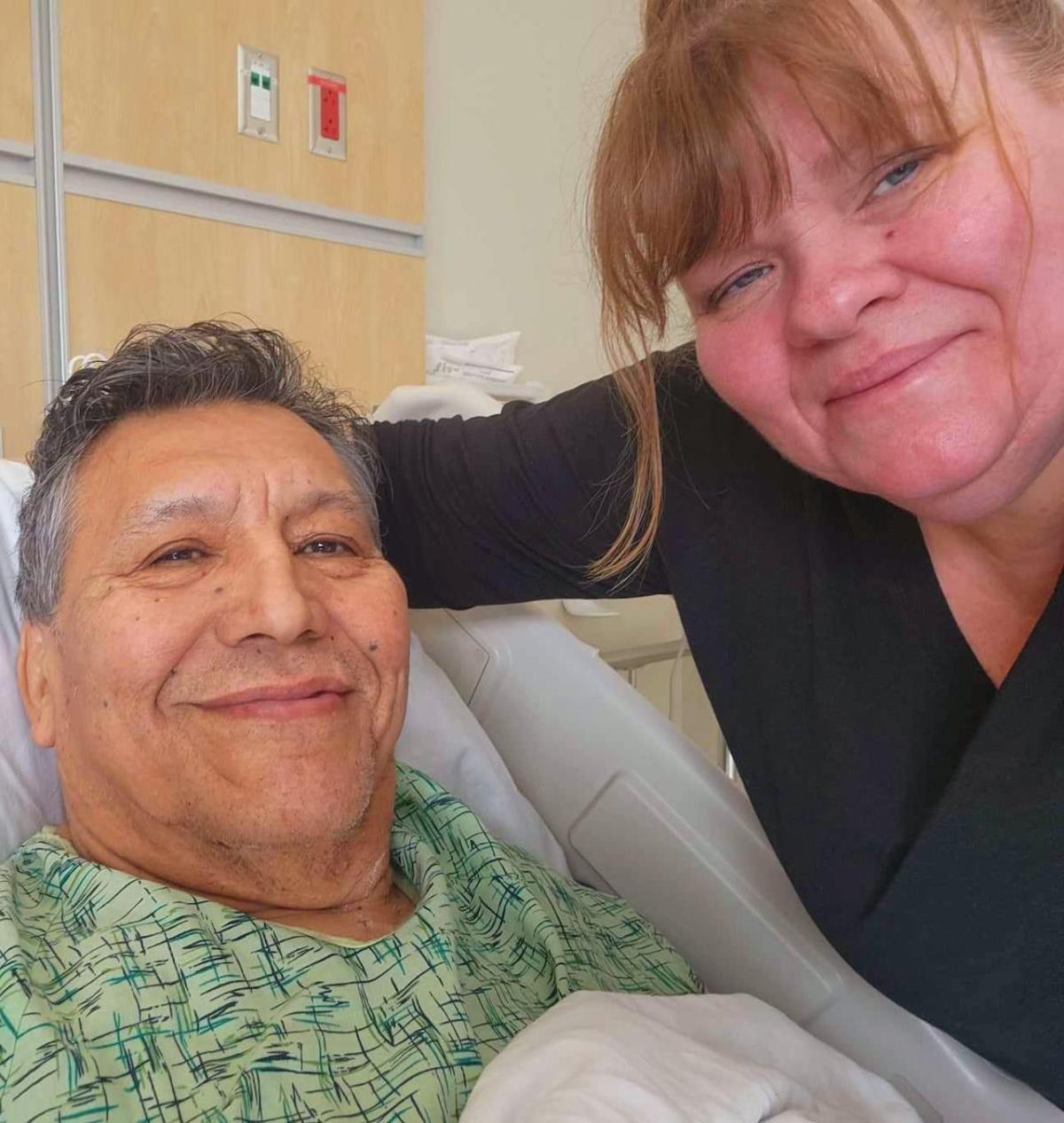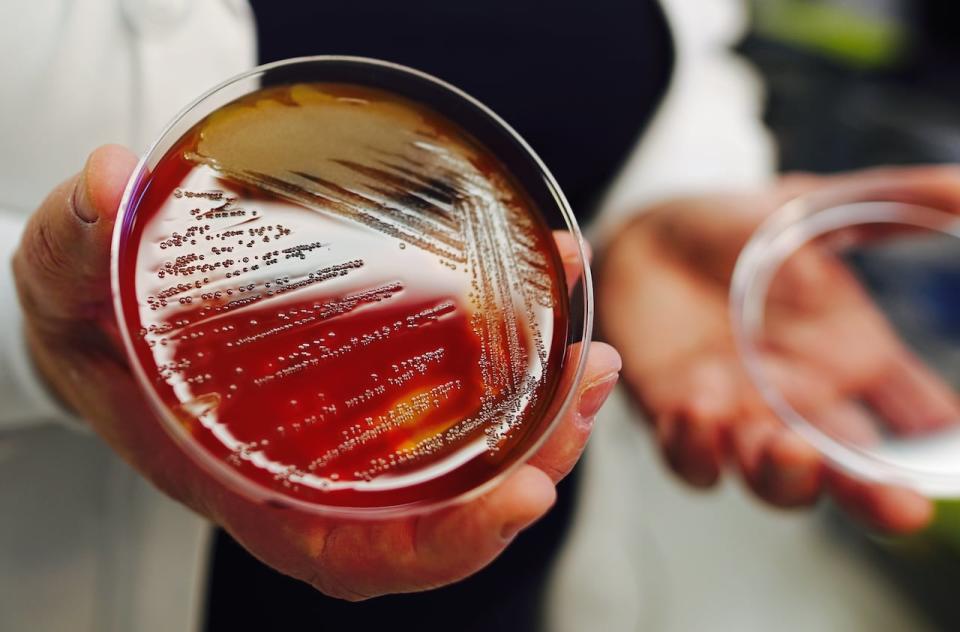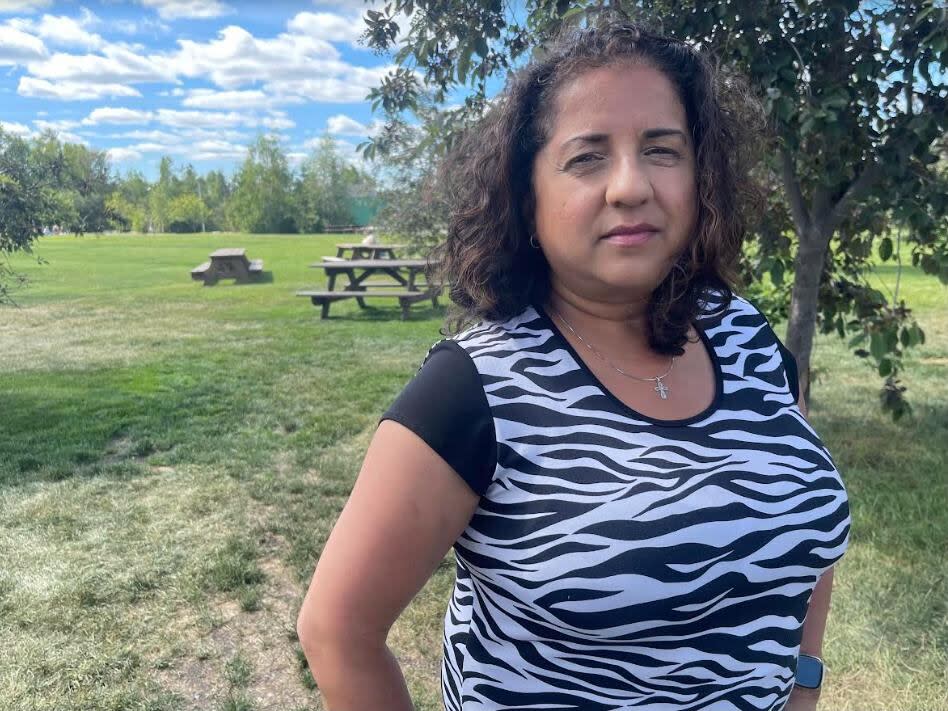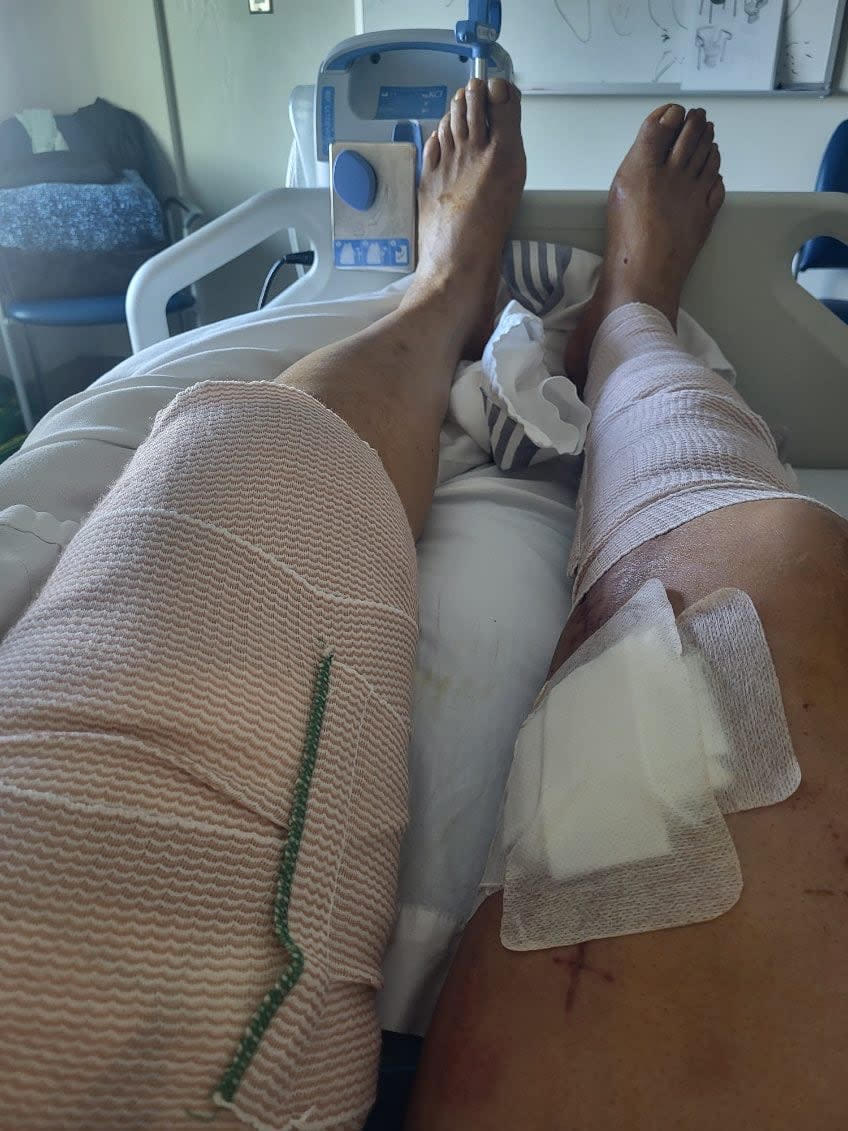Fitness
Potentially deadly strep infections on the rise in N.W.T., chief public health officer says

Wilfred Simon says it started one day in April after he’d been at his daughter’s duplex in Fort Resolution, N.W.T., helping her deal with a plumbing issue.
“I washed my hands good, and I thought I did a good job. Then I went home that night and my leg was itchy — so I scratched it, and I made it bleed,” he said.
He figures that’s how the infection started.
“The bug got inside there, I guess,” he said.
Simon, 69, woke up the next morning feeling feverish and unwell. His wife convinced him to go to the local health centre, and within hours, he was being flown to Yellowknife, where he was in a coma for nine days and almost lost his leg — and his life.

Strep A bacteria in a petri dish. (Craig Chivers/CBC)
He had necrotizing fasciitis, also known as flesh-eating disease, Simon said. It’s a type of strep infection.
Fast-spreading and potentially deadly strep infections — known as invasive group A strep, or iGAS — have been on the rise in the territory this year, according to N.W.T. health officials, mirroring recent trends seen across Canada and elsewhere.
So far this year, the N.W.T. has seen nine confirmed cases of invasive group A strep. That’s equal to the territory’s yearly average, and the year’s not yet half over. One of those people has died.
Almost half of the cases so far this year happened in May, according to Dr. Kami Kandola, the territory’s chief public health officer.
“That’s a small time period. So we are being vigilant,” she said.


Dr. Kami Kandola, the N.W.T’s chief public health officer, said the increase in invasive strep infections is happening across Canada and beyond, though it’s not clear why. (Kate Kyle/CBC)
“There’s no connection between them. The only thing that I could see trending is, this is occurring across Canada. So this is not unique to the Northwest Territories.
“I don’t know why this particular year we’re starting to see an upswing. But when we do see that swing, it’s really important that we let people know.”
Group A streptococcus is a family of bacteria that typically causes milder illnesses, such as painful strep throat, skin infections or scarlet fever. In those cases, antibiotics usually clear things up.
The invasive form occurs when strep bacteria enter the soft tissues or the bloodstream. Though relatively rare, those iGAS infections often progress rapidly, leading to a range of serious illnesses ranging from toxic shock syndrome to sepsis to brain inflammation.
Most estimates suggest around one in 10 people die from iGAS, at times within 12 to 24 hours of being infected.
Serious infections are “very rare,” Kandola said. Still, health practitioners in N.W.T. are being asked to watch out for anything that looks like a strep infection, and to ensure that cases are tested and treated as early as possible.
She also advised people to be alert to any symptoms of a strep infection, such as a sore throat or fever, and to consult with a health professional. People who are feeling ill with an infected wound that is painful or swollen should seek attention right away, she said.
“If you have a skin infection or if you have a throat infection where you feel it’s more severe, you need to reach out and just make sure you don’t have streptococcal infection, so you can get it treated early and not spread it to other people or have it spread into something serious.”
‘I thought I was going to die’
Speaking to CBC News this week, Wilfred Simon said he’s grateful to be alive and recovering after his ordeal.
“It’s a better day. I’m walking now and I’m eating good,” he said. “It’s been 57 days that I spent on the bed.”
He had to have five surgeries. His leg was ravaged by the infection, but it’s now healing up after some extensive skin grafting.
He’s extremely grateful for the doctors and nurses who have helped him, he said, including those back in Fort Resolution who first recognized the seriousness of his situation and acted quickly.


Wilfred Simon recovering in hospital. He’s had extensive skin grafting on his leg, but says he’s starting to walk again. (Submitted by Wilfred Simon)
Simon also credits his wife Teresa for being with him throughout his ordeal and says his faith also gave him strength.
“For a while I thought I was going to die. Like, I had to make my peace with God. And I wasn’t afraid to die at that point, you know, because I made my peace, and I was ready to go,” he said.
“I’m getting back in shape and … I have a different view on life now. I don’t take everything for granted anymore.”


)






